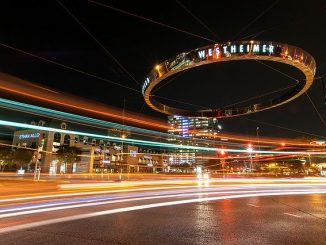
With Metro’s General Mobility Program obligations in the news this past week, it’s interesting to look at something Afton Oaks resident Ted Richardson discovered when he transcribed a Metro committee meeting from February of this year. Richardson filed a TxPIA request to get a tape recording of the meeting, and what we learn is that Metro makes money off the tax revenue it collects for the General Mobility Program.
It’s a long excerpt, but well worth reading:
BOARD MEMBER GERALD SMITH: Any questions on the Investment Report? Speaking of the Debt Report, that’s the next one. Hopefully, you have a copy of that in front of you as well. On the first page, you can see the Commercial Paper program. By the way, you know we have authorization to issue up to about $400 Million. But we only utilize that as needed, but you can see at the bottom, we have a total of about $121 Million outstanding right now. Most of that has been applied toward General Mobility – $100 Million of it. The other $20 Million, $20.5 Million, is for METRO Solutions on the land aspect. The total, as you can see, right at $120 Million. On page two of seven —
BOARD CHAIRMAN DAVID S. WOLFF: Could I bring up another question.
GERALD SMITH: Yes.
DAVID S. WOLFF: In terms of looking at our liquidity, do you also look at the amount that’s outstanding in terms of owed on the General Mobility Program? Do you deduct that from our liquidity, or how do you treat that?
GERALD SMITH: That, that’s part of our Budget process, but it’s not included in the, as part of how we look at from the Investment Report, —
DAVID S. WOLFF: Do you think we should?
GERALD SMITH: Uh, uh, I don’t think so, because, and maybe Louise or Francis may have a different opinion on that, because the fact is even though we know that we’re obligated, the fact is we have no sense of when those funds are going to be asked for, and so that’s why we have the Commercial Paper Program there to, to meet, to meet thosedemands as we, as we see fit. Uh, uh, and uh, I think for us to be able to manage that, that was part of the reason why we had the Commercial Paper program, to, so that, we knew that it is a contingent liability – but when those funds are actually asked for versus when – uh, uh, on an annual basis – there’s been a lot of inconsistency there —
DAVID S. WOLFF: Louise, I think you might take a look at that, because potentially that’s a short term liability, and we don’t want to, to kid ourselves about our liquidity if there’s a short term liability hidden in there. So it might be something you discuss with the Chairman of the Finance Committee and get back to us on it.
LOUISE T. RICHMAN, VP & CFO: Yes sir, I certainly will.
GERALD SMITH: OK. All right. On page two of seven, you can see exactly what our costs for Commercial Paper Program is running us. To date the Program, our net interest cost, is at 3.44, or close to 3.45, which is still extremely competitive in today’s market environment. (pause) Any questions on the Debt Report?
[snip]
BOARD MEMBER GEORGE DEMONTROND: May I ask one question?
GERALD SMITH: Yes
GEORGE DEMONTROND: Our, on the previous report it showed that our realized returns versus benchmark of approximately 5.20, and I look at this program on commercial paper at 3.4. Am I correct in interpreting that to mean that we have a — (pause).
GERALD SMITH: Yeah.
GEORGE DEMONTROND: OK.
GERALD SMITH: I’m sorry. Your comment?
UNKNOWN VOICE: Next question. (Laughter, very long pause).
GEORGE DEMONTROND: Sorry.
(Very long pause)
So, why the long pauses? George DeMontrond just spilled the beans in a public meeting that Metro earns 5.2 percent interest on the sales tax revenue it receives that is supposed to be distributed through the General Mobility Program. Right before that, George Smith noted that Metro’s Commercial Paper Program — which Metro uses to pay for requested general mobility funds — has a very competitive cost of 3.45 percent. DeMontrond put two and two together and began to point out that Metro runs a net gain of 1.75 percent!
Perhaps the City of Houston should be asking for even more money!
Thanks to Tom Bazan for passing on what is a very enlightening look at Metro’s handling of the General Mobility Program.


